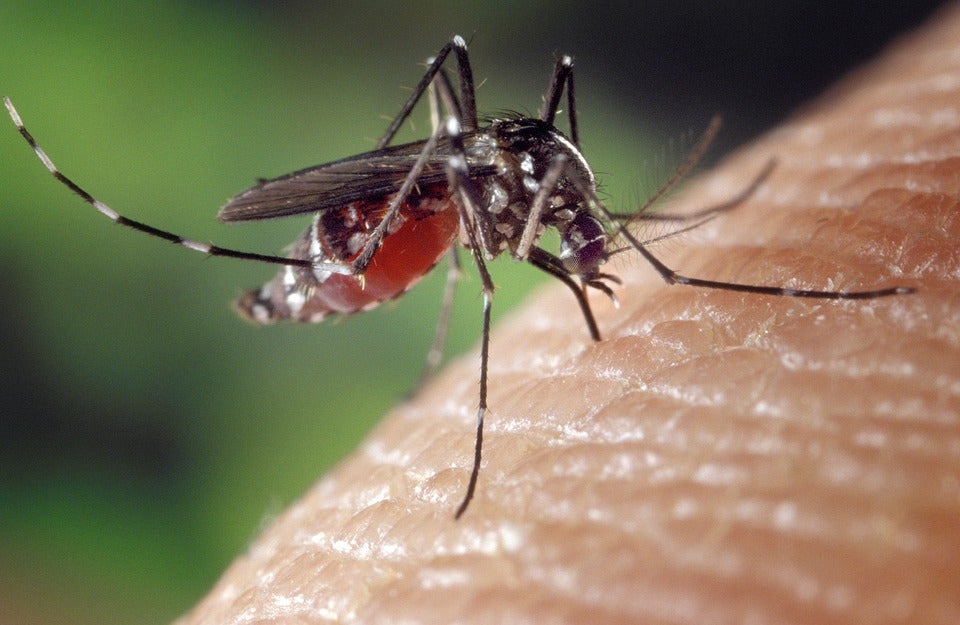Multidrug resistant genetic factors in malaria parasites
January 03, 20183 Jan 2018. NUS scientists in collaboration with researchers from Novartis have discovered two genetic markers in Plasmodium falciparum, the deadliest malaria parasite that can cause it to develop resistance against a new antimalarial drug.
The growing resistance to anti-infective drugs has become a global problem, threatening to derail infection control efforts. Malaria drug resistance is no exception. Reports of resistance against artemisinin combination therapy (ACT), the current gold standard for malaria treatment, have become increasingly prevalent. This raises concerns on current malaria treatment and control efforts. Apart from an increasing need to develop new antimalarial drugs, it is also important to identify countermeasures to delay and/ or minimise the development of resistance against these new drugs.
The research team involving Prof Paul C. HO and his former Ph.D. student Dr Michelle LIM from the Department of Pharmacy, NUS and Prof Pablo BIFANI from the Novartis Institute for Tropical Diseases has identified two previously unreported genes in Plasmodium falciparum, and the putative mechanism which can cause it to develop resistance towards a new antimalarial drug. Plasmodium falciparum currently affects hundreds of millions of people worldwide.
Prof Ho said, “The discovery of these genetic markers and an early understanding of the drug resistance mechanisms will allow for better combination therapy while monitoring the effectiveness of new antimalarial drugs and minimising the development of drug resistance during clinical application.”
An imidazolopiperazine (IPZ) class of drug compounds (saturated cyclic amines) with activity in both liver- and blood-stage parasites has been developed as a new type of antimalarial drug for use in prophylaxis, treatment and prevention of malaria disease transmission. Although IPZs have recently been shown to be highly effective against the malaria parasite, there is a strong tendency for the parasite to develop resistance to the drug. The research team has developed a selection method that enables them to isolate malaria parasite mutants which have evolved drug-resistant properties against this new antimalarial drug. By performing whole-genome sequencing of these drug-resistant Plasmodium falciparum clones, they found two previously unreported genes associated with drug resistance, an acetyl-CoA transporter (pfact) and a UDP-galactose transporter (pfugt).
Prof Bifani said, “The identified mechanisms causing this drug resistance are members of a family of membrane transporter proteins (major facilitator superfamily or MFS) responsible for the translocation of small molecules across the cellular membranes which was not previously associated with drug resistance in parasites. Knowledge of this association will help in future efforts in drug discovery, diagnostics and combination therapy.”

Malaria, an infectious disease, is caused by a parasite which is spread by mosquitoes. When the mosquito bites a person, the parasites are introduced from the mosquito’s saliva into a person’s blood. The parasites then travel to the liver where they mature and reproduce.
Reference
Lim MYX; LaMonte G; Lee MCS; Reimer C; Tan BH; Corey V; Tjahjadi BF; Chua A; Nachon M; Wintjens R; Gedeck P; Malleret B; Renia L; Bonamy GMC; Ho PCL; Yeung BKS; Chow ED; Lim L; Fidock DA; Diagana TT; Winzeler EA *; Bifani P*, “UDP-galactose and acetyl-CoA transporters as Plasmodium multidrug resistance genes” NATURE MICROBIOLOGY Volume: 1 Issue: 12 Article Number: 16166 DOI: 10.1038/NMICROBIOL.2016.166 Published: 2016.


